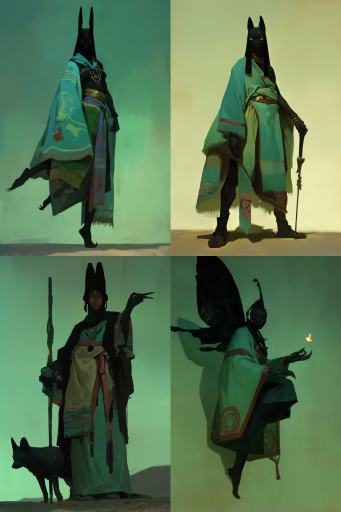Explore the Best AI Image Gallery

Navigating the Ethical Landscape of AI-Generated Media
As artificial intelligence (AI) technologies evolve, the creative industry is experiencing a seismic shift. AI-generated media, encompassing everything from artwork to music, is revolutionizing how we create and consume content. However, this technological advancement brings forth complex ethical considerations that demand our attention.
The Impact of AI on the Creative Industry
AI has established itself as a dynamic player in various creative fields, from visual arts to music composition. Traditional methods of production are being reshaped as tools that leverage machine learning and deep learning become more accessible. These tools not only automate repetitive tasks but also inspire creators, opening new avenues for artistic expression.
For instance, AI-driven platforms like Artbreeder allow users to generate images by manipulating existing ones, effectively repurposing creative resources. This level of collaboration between human and machine could democratize art creation and enable even non-artists to produce compelling visual media.
Potential Uses of AI-Generated Media
AI-generated media has manifold uses that extend beyond mere creation:
- Advertising and Marketing: Brands are increasingly turning to AI for crafting captivating visuals and interactive ads, providing consumers with tailored messages.
- Entertainment: Films and music can benefit from AI, with tools that enhance storytelling, generate soundtracks, and even execute voice synthesis.
- Education: Customizable digital content powered by AI can provide personalized learning experiences.
- Accessibility: AI can create media that is more inclusive, utilizing techniques to enhance accessibility for individuals with disabilities.
Ethical Considerations
While the opportunities presented by AI in media are exciting, there are critical ethical issues that must be examined:
1. Copyright and Ownership
One of the central ethical dilemmas of AI-generated content revolves around copyright. If an AI creates art or music, who holds the intellectual property rights? The algorithm's creators, the user who input the prompts, or neither? These questions have yet to receive comprehensive legal answers, leaving significant ambiguity.
2. Authenticity and Integrity
The rise of AI-generated media compels us to rethink what constitutes “authentic” art. If an AI outputs strikingly realistic images or music that resonates emotionally, does the lack of human intent diminish its value? As society grapples with these questions, artists might feel pressured to prove the human touch in all their work, creating a paradoxical tension.
3. Misinformation and Manipulation
AI-generated media can potentially be weaponized for misinformation. Deepfakes and manipulated images can distort reality, influencing public perception and creating distrust. This challenge necessitates rigorous measures and protocols to ensure ethical usage.
4. Job Displacement
As AI systems become increasingly capable, there are concerns regarding job displacement within the creative industry. While AI can enhance productivity, it raises the question of how to balance its benefits with the need to sustain human employment and creativity.
Future Trends in AI-Generated Media
The future of AI-generated media is promising but fraught with challenges. Here are some notable trends to watch:
- Ethical AI Development: A greater focus on ethical AI frameworks will be crucial. Initiatives promoting transparency and responsible AI usage may emerge as the industry matures.
- Collaborative Platforms: More platforms will likely arise that promote collaboration between human creators and AI, enhancing creativity while maintaining a human touch.
- Increased Regulation: As the implications of AI-generated media become clearer, regulatory bodies will need to step in to address copyright, authenticity, and consumer protection frameworks.
- Emphasis on Education: There will likely be a push for educational programs focused on AI literacy, equipping creators with the skills to navigate the new landscape.
In conclusion, while AI-generated media paves the way for innovation and revitalization in the creative industry, it also brings forth pressing ethical concerns that cannot be ignored. As we navigate this new frontier, it is crucial that artists, technologists, and policymakers work collaboratively to foster a landscape that respects creativity while embracing the transformative power of AI.




